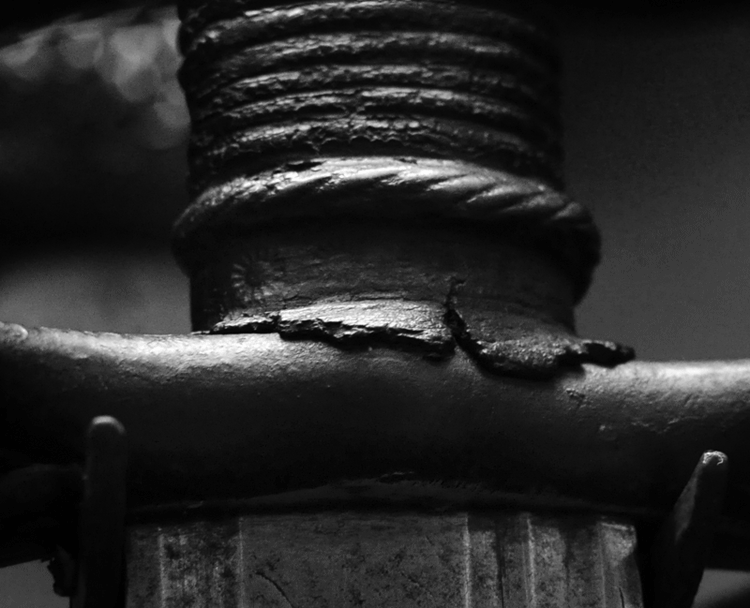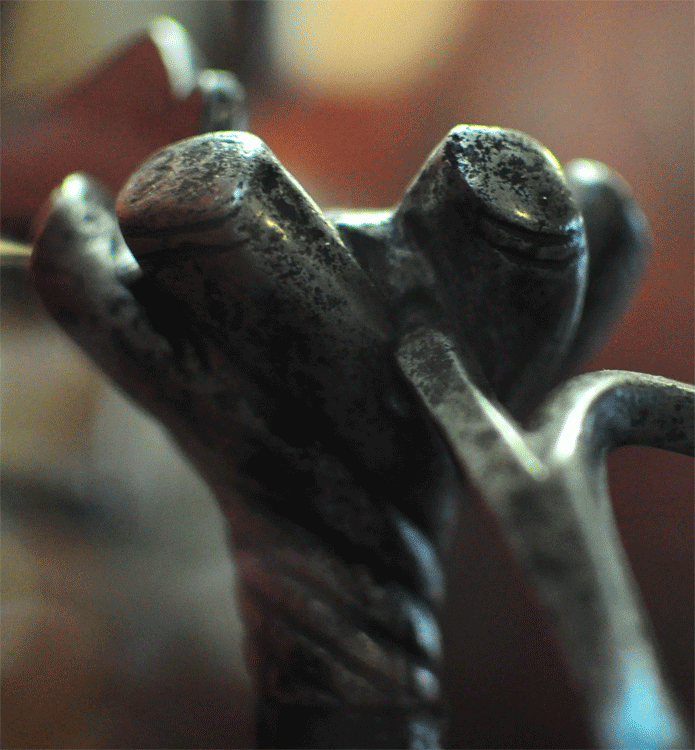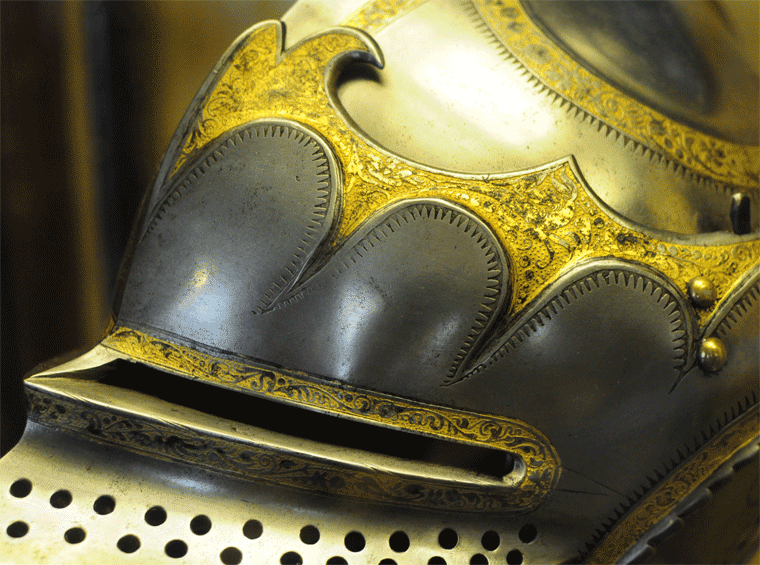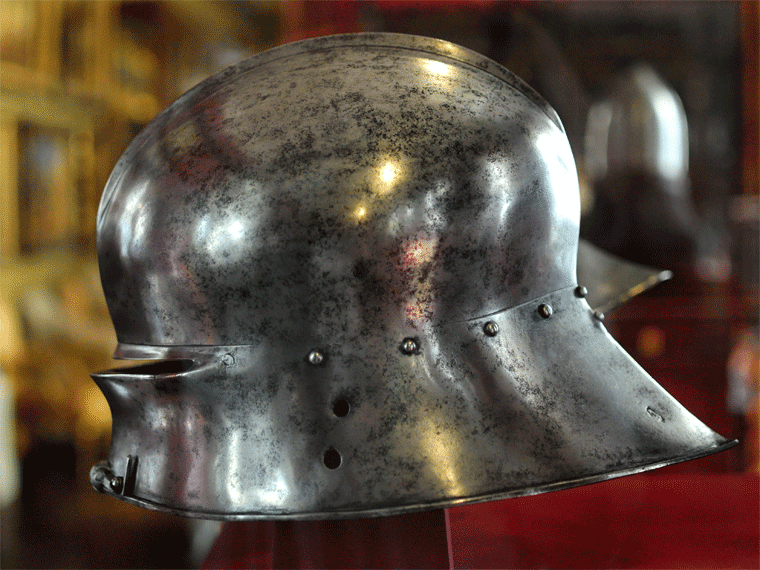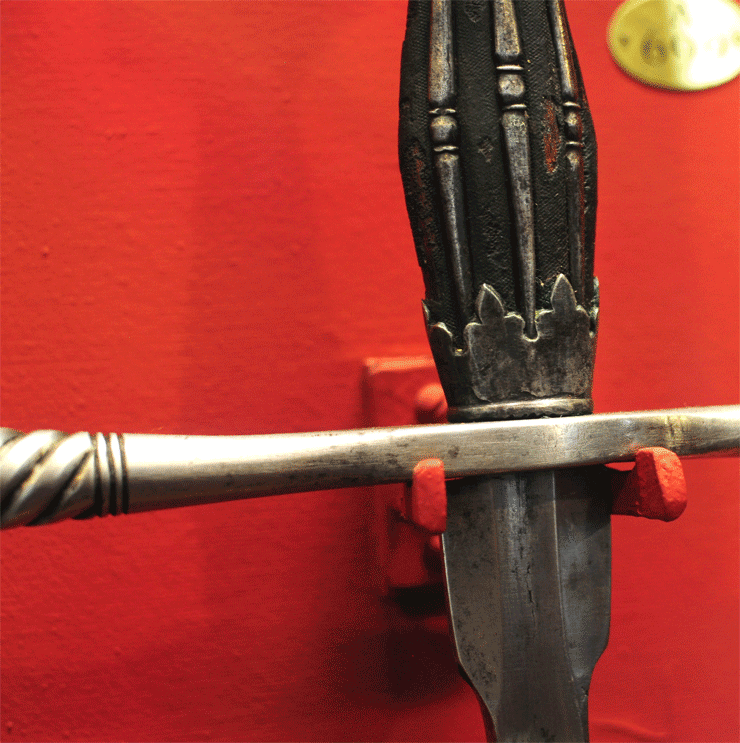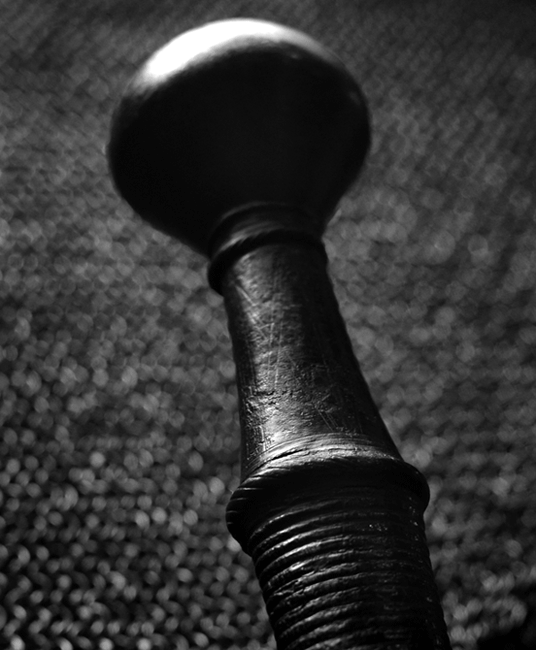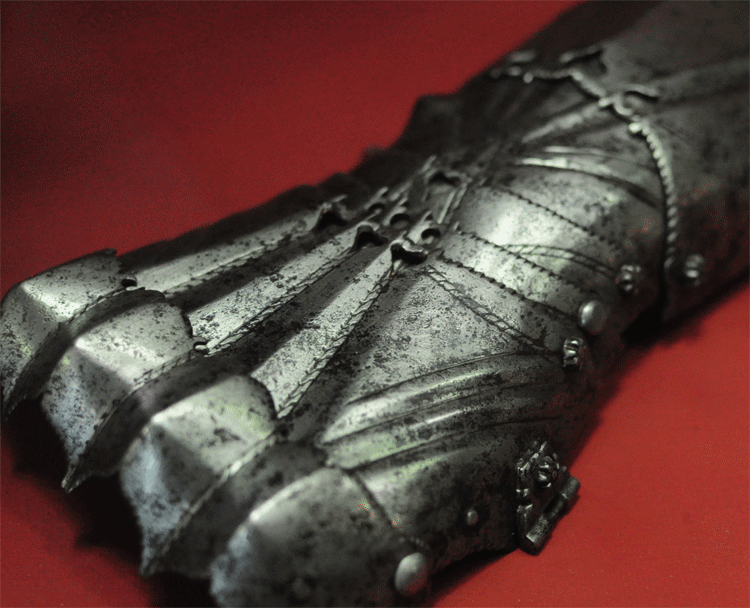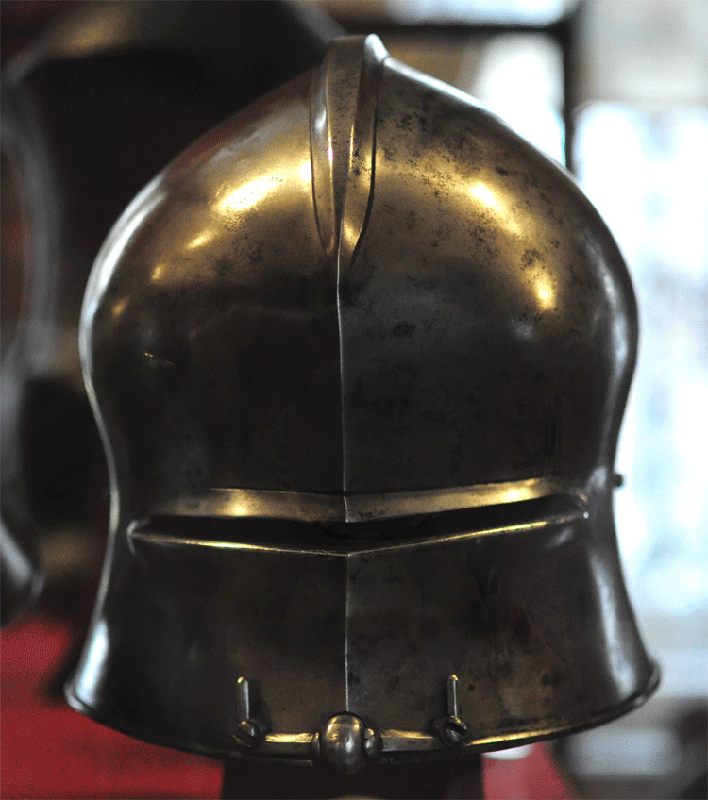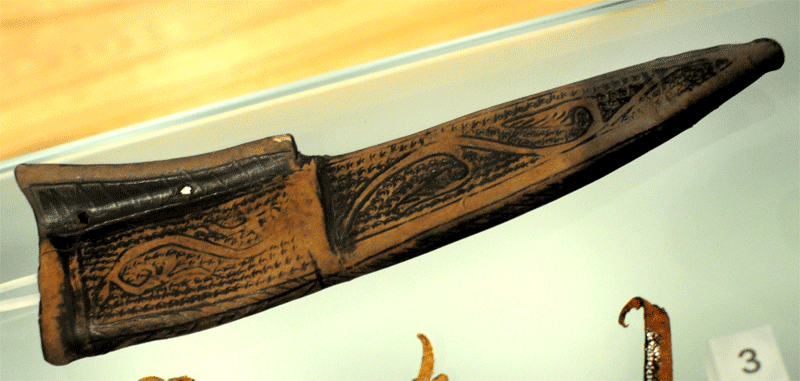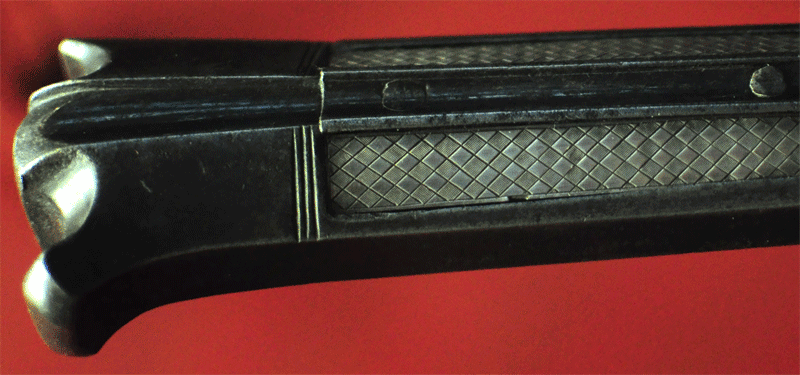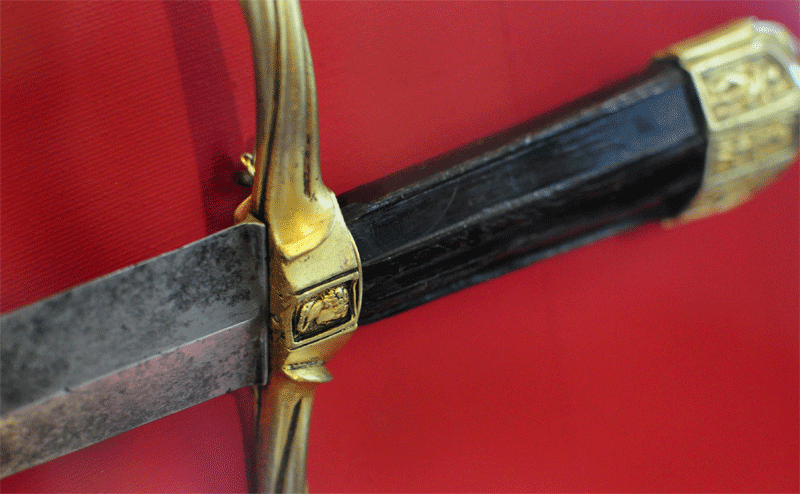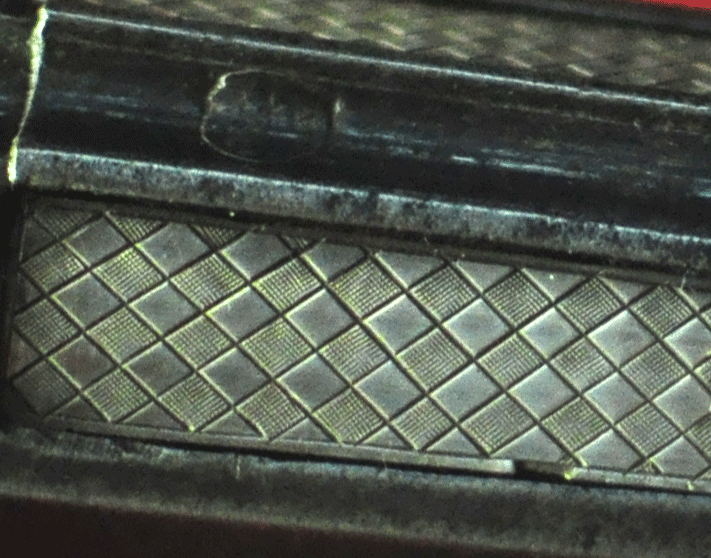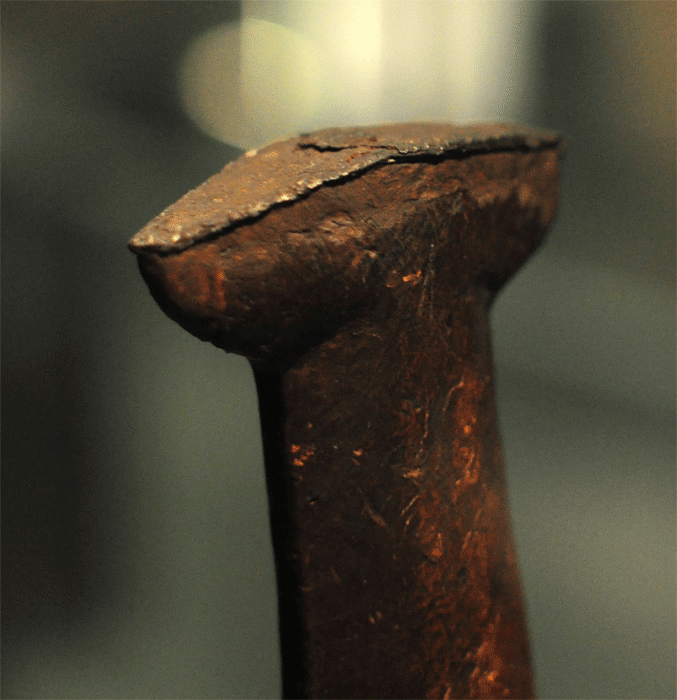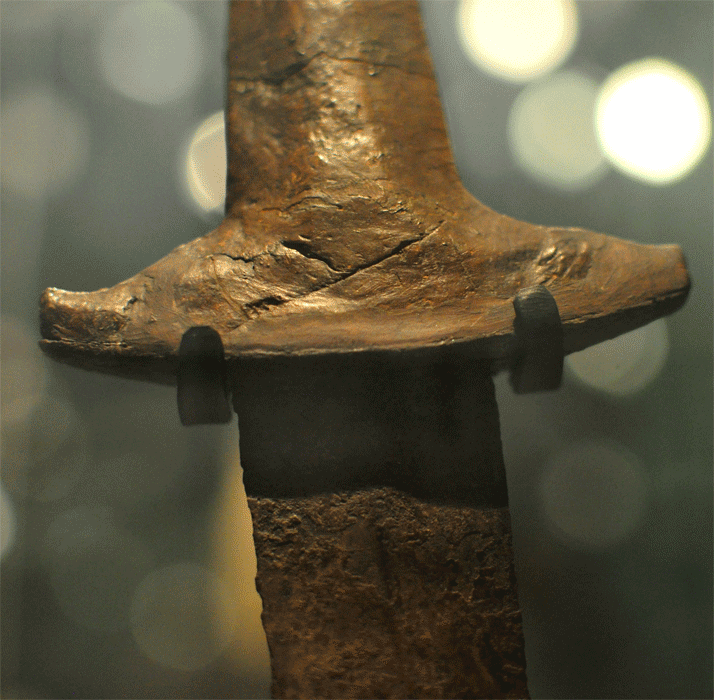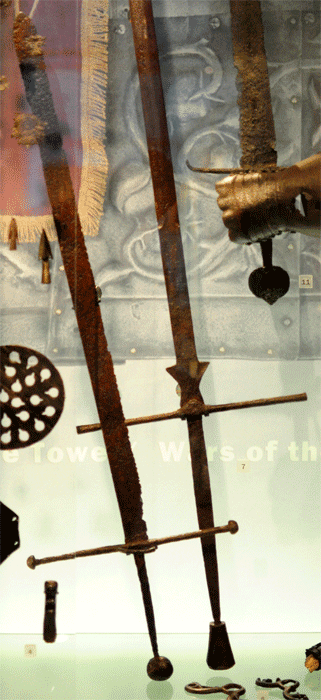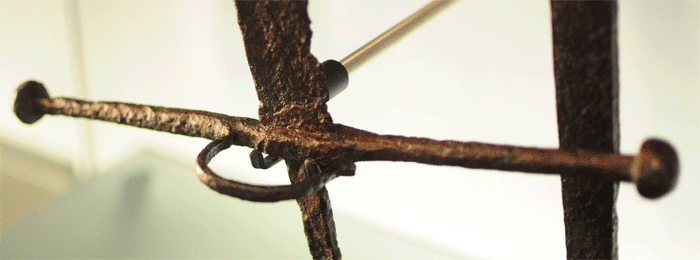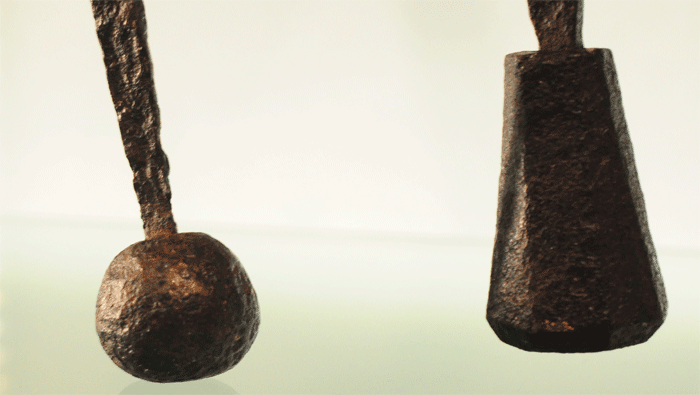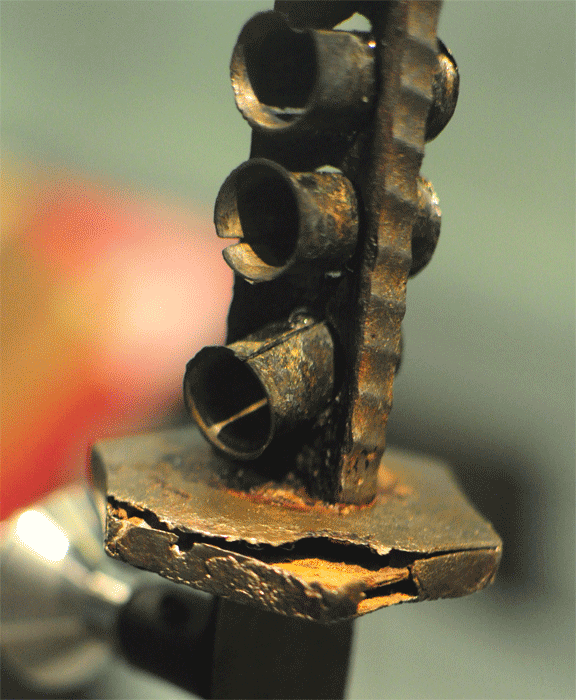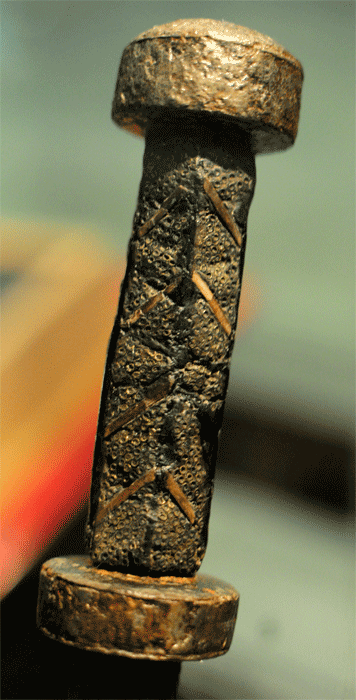For those interested in the technical specs:
Nikon D90
Nikon 50mm f1.8 and 35mm f1.8 (mainly the 35mm because it gives a "normal" perspective on a cropped DSLR and has fantastic close focus). Some of the armour "landscapes" are 50mm f1.8 without the polarizer. That allowed me to stop down enough to get more elements in focus. I typically shot at sensitivity levels of between 800 and 1600.
Circular polarizer: It cuts reflections like magic but reduces light. The fast lenses and string tripod help compensate for that.
String tripod: Eye bolt, wing nut, steel washer and rubber gasket. Nut, washer and gasket go over the bolt. Paracord tied to eye of bolt. Knots in free end of cord. Screw bolt into camera tripod socket, step on knot(s), pull taught against body to damp vibration, compose, hold breath, squeeze release, follow through, exhale. Nobody ever questioned my use of this old stabilization trick and it often made the difference between a useable shot and nothing. Of course, it does not mar floors, obstruct other visitors, smash cases, etc. :D
I won't provide captions for these photos and won't post them in any particular order. In most cases the detail of my interest will be apparent. I hope others will find them as interesting and useful. Feel free to ask questions about anything you see here! I'll tell you what I know.
